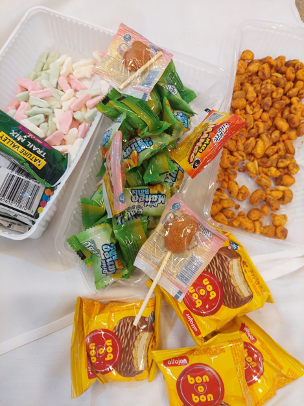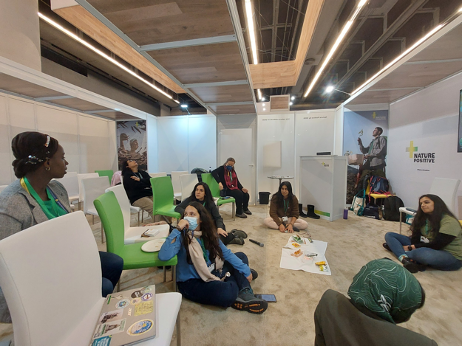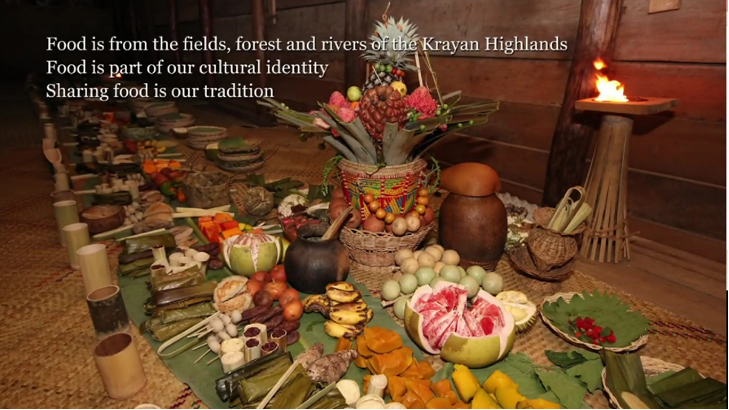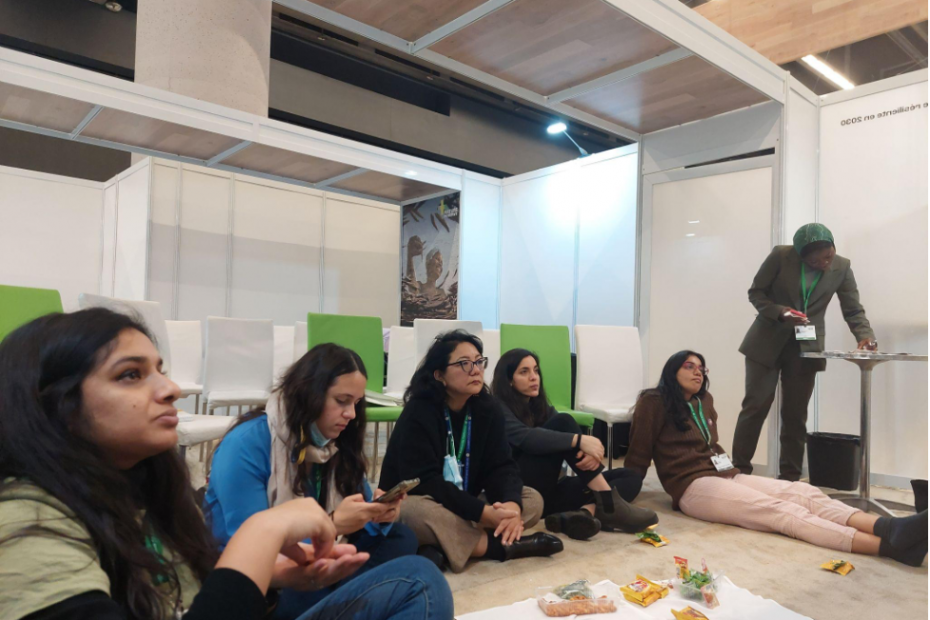TEXT BY SHRUTI AJIT, PROGRAMME OFFICER AT WOMEN4BIODIVERSITY
Women4Biodiversity organized a session called “Reimagine HER Rights” on 16 December 2022 at the World Wide Fund for Nature (WWF) Nature-Positive Pavilion as part of the Fifteenth Meeting of the Conference of the Parties to the Convention on Biological Diversity (CBD COP 15). The aim of this workshop was to reflect, review and build a collective vision on the then-ongoing discussions at CBD COP 15 on the global biodiversity framework and women’s future in biodiversity, among other things. Participants were asked to bring food from their region and the event was welcomed by placing all these tiny titbits brought from all over the world. This session also was screening multiple short films that addressed issues of gender justice, food security, their fair and equitable access to ecosystems where they live and the role women play in the preservation and transmission of traditional knowledge.

The session began with the screening of narration of the story “Sultana’s Dream”written by Begum Rokeya. When Begum Rokeya first published this book in 1905, she did something that a lot of Bangladeshi Muslim women her time couldn’t do – she dared to dream of a world where roles were reversed, and where the world is devoid of any war, where women are educated to help make advancements in science and technology. This film was meant to inspire those watching to begin collective envisioning for the future of gender rights.
The film opened up an intimate space for participants to share their journeys of where they came from and what propelled them to address issues around gender inequalities, why they continue in this space and what it is they want for women 100 years from now. Among the visions that came up in response to the last question was a safer, kinder and more just world for women.
The next film that was screened was “ Abuela Grillo,”an animation based on the legend of Ayoreo people of Bolivia. The title in Spanish means “Grandma Grasshopper.” The film highlights the perils of privatization and commodification of natural resources – in this case, water commercialized by corporations and its impact on people. It portrayed the role of indigenous communities in Bolivia who fought for their right to clean water in the early 2000s, eventually winning against the private corporations.
In the next film, the participants travelled all the way to Indonesia to North Kalimantan to understand food and identity of the Lundayeh Indigenous Peoples of the Karayan Highlands District of Nunukan. Called as “Luk Kenen Tau” translating to “Our Foodways”, this film showed how women continue to preserve, conserve and transmit traditional knowledge around food systems. Local food systems like wild vegetables, fish and meat are integral to the culture and identity of the Lundayeh People. UNCBD Women’s Caucus Advisory Board Member Sara Subba remarked: “It is very interesting to see how certain food practices which were shown in the film are also practiced in Nepal and parts of North East India and we are able to relate to these knowledge systems which is so intrinsic to understanding the diversity in food systems, nutrition and biodiversity.”

Moving to East India, in a village of Gunduribari, in Nayagarh District in the state of Odisha, another short film showed women protecting their own forests. The title “Thengapalli” translates to the Odiya word “Thenga,” meaning stick, and “palli,” meaning turn. In the film, the women took matters into their own hands when their forests were being exploited and destroyed by the timber mafia. By creating women-led forest patrolling groups, these women would take turns guarding the forest from anyone who would enter with the intention of stealing teak wood from the forest.
“Usually you would see articulation of women valuing the ecosystems around them as mothers. For the first time in this film I saw the women articulating about the forest being like a child for them and therefore the need to be the guardians that protects them is refreshing,” said WWF International Global Governance Policy Coordinator Cristina Eghenter.
At the end of the session, participants were in a reflective but rested mood, ready to go back to the hustle and bustle of COP 15 and especially continue the campaign for a stand-alone gender equality target. Two days later, it was adopted as Target 23 of the Kunming-Montreal post-2020 global biodiversity framework.


